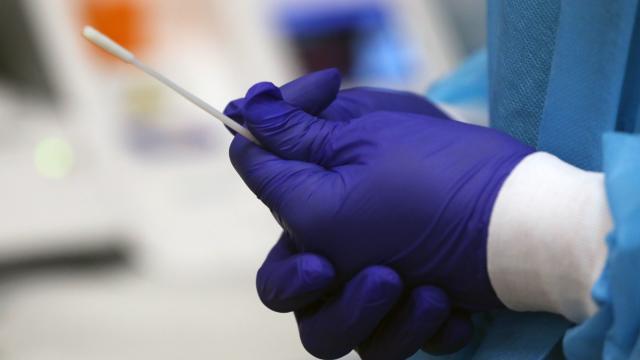The Food and Drug Administration has approved the first rapid coronavirus test kit that can be performed at home, issuing an emergency use authorization to manufacturer Lucira Health late on Tuesday.
This does not mean anyone can just go online and order one of the kits whenever they please. Emergency use authorizations fast-track drugs and other medical supplies through the normally lengthy vetting process designed to ensure they are safe and effective, but they typically come with restrictions on in what circumstances they can be used. In this case, the FDA’s order allows for the kit to be made available to those ages 14 or older only with a valid prescription, and those younger can only receive the test if it is performed by healthcare workers. The order also allows for medical personnel to administer the test in a variety of healthcare settings ranging from doctors’ offices to emergency rooms.
At-home tests could help limit potential virus exposures in medical settings, increase testing rates, and relieve laboratories and test sites facing crushing demand. Mail-order kits already exist but have to be shipped back to a lab.
According to NPR, the kits are only expected to be available in limited quantities in Florida and California for now.
The Lucira COVID-19 All-In-One Test Kit is a molecular diagnostic test kit that can be used once and detects RNA of the SARS-CoV-2 virus in nasal swab specimens. The swabs are inserted into a small electronic device that displays whether the result is positive or negative.
“While COVID-19 diagnostic tests have been authorised for at-home collection, this is the first that can be fully self-administered and provide results at home,” Dr. Stephen Hahn, the commissioner of the FDA, told CNN in a statement. “…This new testing option is an important diagnostic advancement to address the pandemic and reduce the public burden of disease transmission.”
Lucira told NBC News its test is 94.1% sensitive and has a specificity rate of 98%. Sensitivity is a measurement of how often the test correctly generates a positive result, while specificity measures how likely a test is giving a correct negative result (the higher the rate, the less chance of a false positive). For example, an airport metal detector is highly sensitive, but very non-specific, as it detects most metallic objects but provides no further information to the operator on whether it is a false alarm (loose change) or a real problem (a pistol).
According to the New York Times, Lucira’s test is less accurate than laboratory-performed polymerase chain reaction (PCR) tests, which use reagents designed to make specific types of genetic material (such as viral RNA) duplicate themselves to detectable levels. The Lucira kit relies on loop mediated amplification reaction, a similar method that cuts some corners to generate speedier results. The Times also noted that Lucira’s study was small, self-conducted, and only involved participants exhibiting symptoms of the virus, meaning it hasn’t been vetted for use on asymptomatic or pre-symptomatic individuals who only suspect they may have the virus.
Tom Bollyky, the Council on Foreign Relations’ director of global health and senior fellow for global health, economics, and development, told CNN that although some wariness is warranted, expanding the test kit roster available to healthcare workers and public health authorities is good news.
“The data is just still emerging,” Bollyky said. “Obviously with some past emergency use authorizations it pays to be cautious with what the FDA has put out here, but it’s certainly a promising sign.”
The U.S. has lagged to an embarrassing degree on testing since the start of the pandemic. The coronavirus is now considered to be spreading uncontrollably in the vast majority of the country, with the Johns Hopkins University School of Medicine tracker estimating over 11.4 million confirmed cases and nearly 250,000 deaths. There are now very few places in the country where numbers of new cases are not increasing. As NPR noted, that means the U.S. is again struggling to meet demand for testing services, resulting in long lines and delayed test results.
There is good news, however. Pfizer and its German partner BioNTech announced full results from a Phase III trial of its experimental covid-19 vaccine on Wednesday, with findings that suggested it could be 95 per cent effective at preventing illness. Competitor Moderna released nearly identical results on Monday. Both companies are expected to seek emergency use authorizations from the FDA within days.
Though Health and Human Services Secretary Alex Azar has said the feds expect 40 million doses of the vaccine (enough for 20 million people, who will require two doses each) to be available in the U.S. by the end of the year, experts say it will take until mid-2021 at the absolute earliest to achieve herd immunity in the states. That’s when enough people are immune to the virus that it struggles to spread to new hosts, choking off its growth. However, ensuring widespread availability across the U.S. — let alone the entire globe — is a daunting task, with potential difficulties including everything from socioeconomic inequality to propaganda from relatively small but extremely committed groups of anti-vaccine conspiracy theorists.
